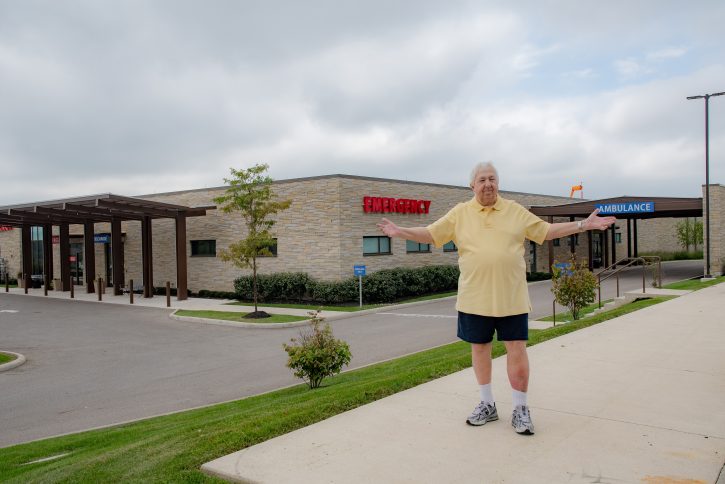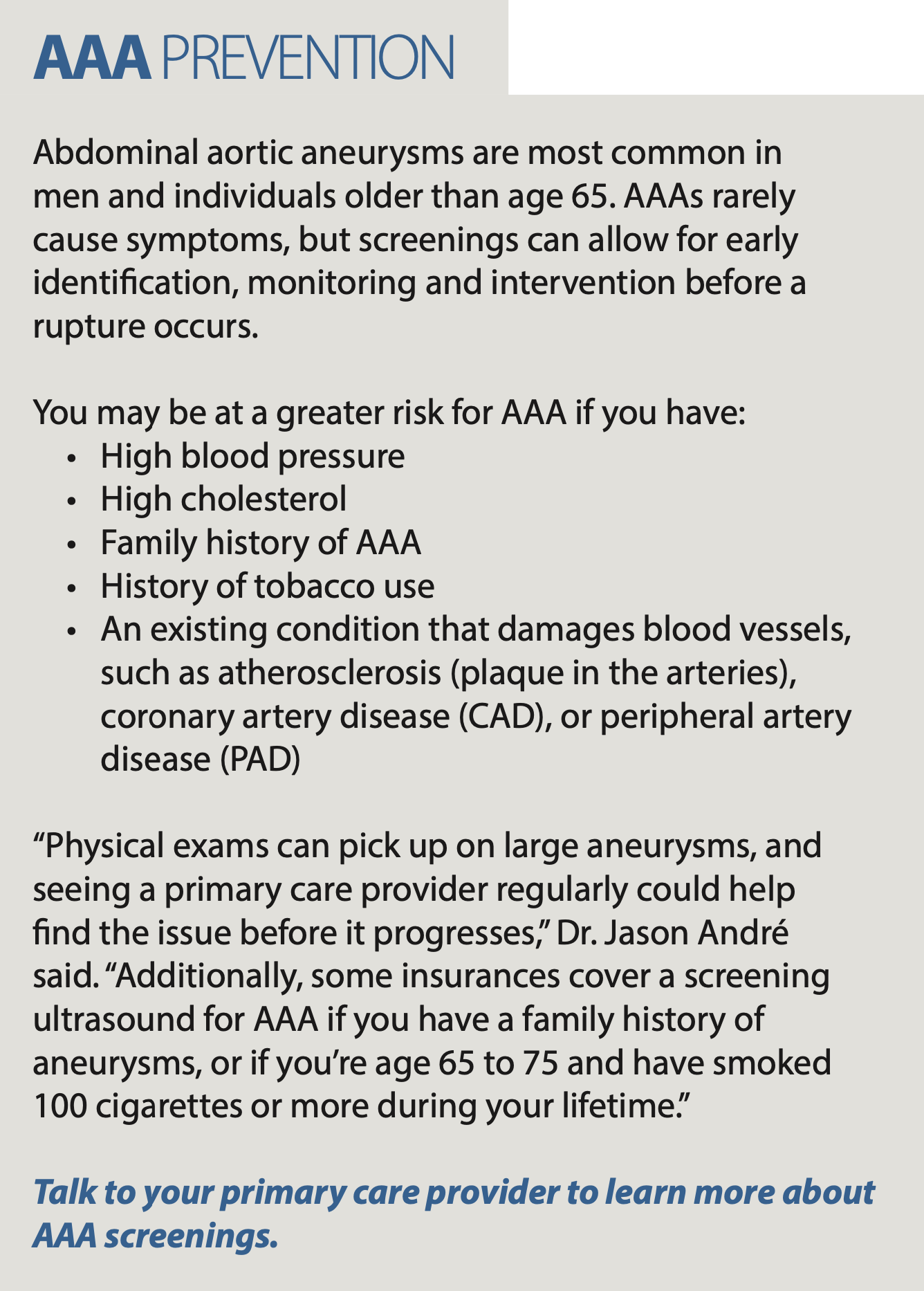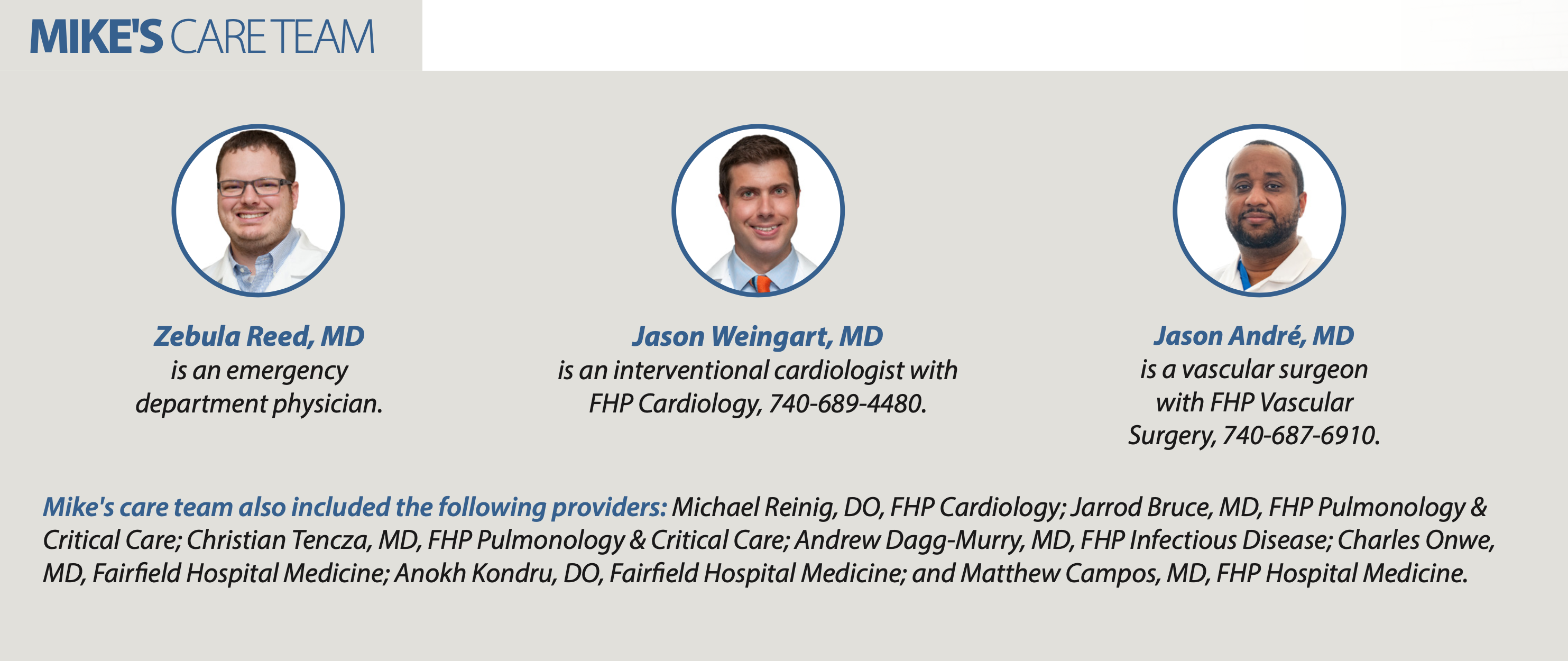
Article originally published Fall 2022 in The Monitor magazine.
Growing up, Mike North didn’t care much for doctors. At the age of 78, he continued to feel the same. For nearly 20 years, he avoided the world of routine medical appointments and check- ups. After all, he was in good health. There seemed no reason to fix something that wasn’t broken. Following an unexpected turn of events, Mike had a change of heart.
On Jan. 28, 2022, Mike spent an uneventful day running errands. Around 5 p.m., he noticed his heart was racing wildly. He quickly grew concerned and instructed his wife to call 911 – a clear indicator that something was very wrong. When the ambulance arrived, it transported Mike the short distance to Fairfield Medical Center’s River Valley Campus Emergency Department.
The ED staff and emergency physician Zebula Reed, MD, quickly assessed the situation. With a still-rapid heart rate, back pain, and dangerously low blood pressure, Mike’s symptoms were pointing to a ruptured abdominal aortic aneurysm (AAA). The condition occurs when the main blood vessel from the heart – the aorta – grows weak, bulging until the walls of the vessel give way. Because the aorta is about the size of a garden hose, blood loss occurs quickly. When this happens, the chance of survival plummets to less than 20 percent, even with emergency medical attention.
“I had no indication that something like this was going to happen,” Mike recalled. “This whole thing has reminded me that we’re only here for a short time. If we hadn’t called the squad, and if it weren’t for those doctors and nurses at FMC, I know I’d be dead.”
As Dr. Reed discussed the severity of the situation with the North family, it was decided that Mike would receive an emergency blood transfusion to stabilize his condition, and then he would be transported to Fairfield Medical Center’s Main Campus. Once there, Fairfield Healthcare Professionals vascular surgeon Jason André, MD, would be waiting to repair the ruptured vessel.

The emergency procedure, known as an endovascular aneurysm repair (EVAR), was completed with hardly an incision. Much like a heart catheterization, Dr. André used small punctures in the groin to access the femoral artery and thread a special device to the site of the rupture. Next, a stent was placed inside the damaged aorta to patch the life-threatening tear and prevent further blood loss. The surgery was a success, but Mike’s prognosis remained guarded.
“It truly takes a team to save a patient with a ruptured aneurysm,” Dr. André said. “For Mike to survive this devastating scenario, it makes me proud of FMC and our ability to treat complex issues.
For patients like Mike, the risk of mortality continues through the post- operative period, and our ICU team did a great job of caring for him throughout his stay.”
Although Mike was discharged after just eight days in the hospital, he is overwhelmed with admiration for the nurses who helped him beat the odds and has become a familiar face to the staff and providers
of Fairfield Medical Center. In truth, he is a far cry from the man who was once resistant to visiting the doctor’s office. He has been back for several follow-up appointments with specialists across the facility, and he’s been impressed with his level of care at every turn.
For example, Jason Weingart, MD, of Fairfield Healthcare Professionals Cardiology now manages Mike’s heart health. As a patient, Mike
finds confidence in the thoroughness and transparency of his new cardiologist. With a greater understanding of what to expect, why a treatment is recommended and what the intended outcome is, Mike has become a model patient.
“A good physician-patient relationship is vital to providing high-quality medical care,” Dr. Weingart said. “It allows patients to be forthcoming about their symptoms and concerns, and it allows providers to be honest and direct about recommendations and findings. In Mike’s case, we’re here to monitor, identify and treat any cardiac complications that may arise after his emergency and for years to come.”
As a natural problem-solver, Mike says he is always looking for ways to improve processes. Now, he’s applying that same philosophy to his health and encouraging those around him to do the same.
“I immediately called four or five of my friends and told them, ‘If you don’t have a cardiologist, go get one. Now.’ Having not had preventative care for a while, I now see the importance of it, and it’s something I think others should be aware of.”
To learn more about heart and vascular care at Fairfield Medical Center, click here.
